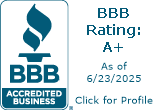In the 2012 Supreme Court case of In re Marriage of McGrath, the Court held that the amount withdrawn by the father from his savings account should not be considered “income” for child support calculations because the money already belonged to the father. However, if using the statutory guidelines for child support generates an amount that the court finds inappropriate, the court can make specific findings of this and adjust the child support amount accordingly by using the factor that allows the court to consider the financial resources and needs of the parent.
In Illinois, the law defines “net income” for purposes of child support calculation, but it does not define “income”. Net income is defined as the total of all income from all sources minus several enumerated deductions. Funds that you withdraw from the savings account that already belonged to you do not increase your wealth or provide you with a “gain or a recurrent benefit” these funds as withdrawn are not income.
Illinois Supreme Court Defines Meaning of “Income”
The Illinois Supreme Court has discussed in detail the plain and ordinary meaning of the term “income” in the In Re Marriage of Rogers case, 213 Ill. 289 Ill Dec 610, 820 N.E. 2d 386 providing that “as the word itself suggest, income is simply something that comes in as an increment or addition . . a gain or recurrent benefit that is usually measured in money.” There are other Illinois court cases that define income as “a gain or profit and is ordinarily understood to be a return on the investment of labor or capital thereby increasing the wealth of the recipient.”
In applying the analysis of the courts in Illinois the money in a savings account already belongs to the account owner. By withdrawing the money in the savings account it does not provide a gain or benefit to the owner of the account. The money is not coming in as an increment or addition and the account owner is not receiving money that already belongs to him.
“Gross Income” as Defined by Updated Illinois Child Support Law
In the new Child Support Law in Illinois which changed in July 2017 to shared support based on both parties income as opposed to a percentage of the obligor’s income, there is now a definition of gross income as follows:
“The total of all income from all sources, except “gross income” does not include (i) benefits received by the parent from means-tested public assistance programs, including, but not limited to, Temporary Assistance for Needy Families, Supplemental Security Income, and the Supplemental Nutrition Assistance Program or (ii) benefits and income received by the parent for other children in the household, including, but not limited to, child support, survivor benefits, and foster care payments. Social security disability and retirement benefits paid for the benefit of the subject child must be included in the disabled or retired parent’s gross income for purposes of calculating the parent’s child support obligation, but the parent is entitled to a child support credit for the amount of benefits paid to the other party for the child. “Gross income” includes maintenance treated as taxable income for federal income tax purposes to the payee and received pursuant to a court order in the pending proceedings or any other proceedings and shall be included in the payee’s gross income for purposes of calculating the parent’s child support obligation.”
What About Business and Self-Employment Income?
Another area of interest in the family law courts is income generated through self-employment, a business, or through income-producing rental property. The statute provides that for calculating business income for child support you get the net business income by taking the gross receipts and deducting ordinary and necessary expenses required to carry on the business.
Client Victory Addressing Income for Calculating Child Support
In a recent child support case argued by Anderson Boback & Marshall, opposing counsel wanted to include, in addition to our client’s W-2 wages, all of the gross rental and business income of our client for calculating child support. The court agreed with us that any child support obligation should not include income from the rental properties when his testimony was unrefuted that the net proceeds from those properties was zero. In addition, our client owned and operated a small business that breaks even over the course of the year based on the ordinary and necessary expenses required to operate the business. Our client owned and operated the business but employed others to work the business since he had a full-time job elsewhere.
In Tegeler, 365 Ill.App.3d at 456, 302 Ill.Dec. 173, 848 N.E.2d 173, the mother argued that the father’s testimony that his expenses were reasonable and necessary was insufficient in the absence of any receipts substantiating such expenses. The court rejected the argument pointing out that the father’s tax returns showed itemized totals of expenses… The court concluded that such evidence constituted a prima facie showing that such expenses were legitimate, which the mother failed to rebut. And as in In re the Marriage of Baumgartner, 890 N.E. 2d 1256 (1st Dist 2008) husband’s non-reimbursed business expenses, as stipulated to by wife, constituted a prima facie showing that the expenses were legitimate. While the wife did not stipulate to the reasonableness of the business expenses, her argument, based solely on the lack of profit, does not rebut the reasonableness of the expenses.
Prior to July 1, 2017, Illinois section 505(a)(3)(h) of the Act permitted, in relevant part, deductions for “expenditures for repayment of debts that represent reasonable and necessary expenses for the production of income.” 750 ILCS 5/505(a)(3)(h) (West 2016). Thus, for an individual to successfully claim a deduction, he or she had to establish that it was a reasonable and necessary expense for the production of income and that “ ‘it [fell] into the category of debt repayment as evidenced by a specific repayment schedule.’ ” In re Marriage of Vance, 2016 IL App (3d) 150717, ¶ 42 (quoting In re Marriage of Nelson, 297 Ill. App. 3d 651, 655 (1998)); ¶23 as quoted from the most recent third district case Hochstatter and Hochstatter 2020 Ill App (3d) 109132.
Illinois Section 505 – Defining Business Income
Effective July 1, 2017, section 505 of the Act was substantially rewritten, including the provisions applicable to calculating gross and net incomes. In part, the legislature added a section for the calculation of business income. See 750 ILCS 5/505(a)(3.1) (West 2018). In relevant part, section 505(a)(3.1)(A) provided: “(3.1) Business income. For purposes of calculating child support, net business income from the operation of a business means gross receipts minus ordinary and necessary expenses required to carry on the trade or business. Id.
Although the Hochstatter case dealt with depreciation, the court provided guidance as to the July 1, 2017 modification to section 505 relating to calculating net income from business income. Joshua’s testimony was unrefuted and there was no evidence presented to show that the business expenses he pays for his rental properties and his small business were or are inappropriate or excessive and therefore should not be excluded from the total of ordinary and necessary business expenses to be deducted in the determination of net business income from gross business income.




















